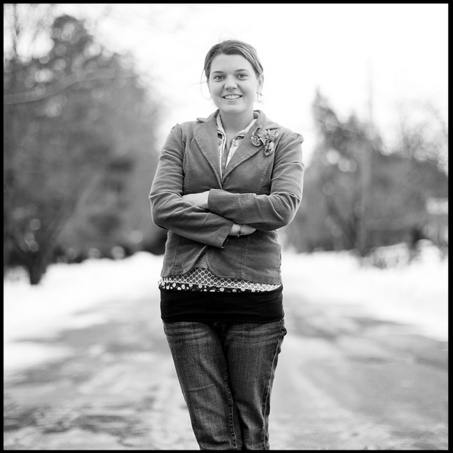
Maggie Doyne, D.I.Y. Foreign Aid Entrepreneur: Image Credit – Aristide Economopoulous
Nicholas Kristoff has an article (here) in the New York Times magazine on what he sees as a two-part trend: 1. do-it-yourself foreign aid; and, 2. the notable role of women in that effort. I won’t rehash the substance of the article but it is worth asking if this D.I.Y. approach to foreign aid is a reaction to the ineffectivness of national and intetrnational aid organizations or a trend toward a new kind of individual global engagement – or both. Is this an outgrowth of globalization in which the decline of the nation-state and its traditional roles (like foreign assistance) that is prompting a rise in individual efforts to fill the gaps. It’s hard to say if the three women profiled in the Kristoff article are, in fact, a harbinger of a broader trend. Are there more of these philanthropic entrepreneurs now then in previous decades? Also, could they really operate in the D.I.Y. manner without the structure of the international system to support their efforts? And are there activities truly that different from U.S. Peace Corps vulunteers, UN volunteers, or even those serving in religious organizations like the Jesuit Volunteer Corps? These groups have varying levels of institutional control over what are generally highly individualistic vilnteer activities? It could very well be that this D.I.Y. aid is a trend worth watching but to make that claim we need to have a better understanding of how this small sample of extraordinary stories compares across time, regions and other definitions of volunteerism.
In addition, if Kristoff is correct that this trend is largely propelled by young woman, how does that fit into our thinking about the role of women in international politics overall? Cynthia Enloe’s Bananas, Beaches and Bases sought to expand the standard definition of international politics to include women working outside the roles of military personnel or government officials. This expanded definition included military and diplomatic wives, sex workers and banana plantation workers. There are many more excellent works that examine how international politics is studied and if gender is properly addressed, and others that ponder how international politics might be played out if more women were leaders and both the implementation and study of international relations were less masculine. Many of these works focus on international security, diplomacy, conflicts, etc. But I am less familiar with what works exist on the role of women in the implementation of international development projects (yes, there are many reports, books and articles on development projects for women but also works about projects by women?). Again, it is difficult to ascertain if this is indeed a trend toward greater involvement by women in foreign aid without being about to compare to other categories. As a starter, I would be curious to see how many women have been hired by USAID over the last few years compared to the State Department. UNDP versus DPKO? Is there a tendency for women to apply to aid organizations instead of more traditional diplomacy and military jobs? My guess is that over the last few years that is not the case but please let me know if you have more solid information on these trends or know about good articles on the topic.
In the meantime, here is a link to a speech at the Do Lectures by Maggie Doyne, one of the women featured in Kristoff’s article. Whether or not she is part of a trend, her story is remarkable.